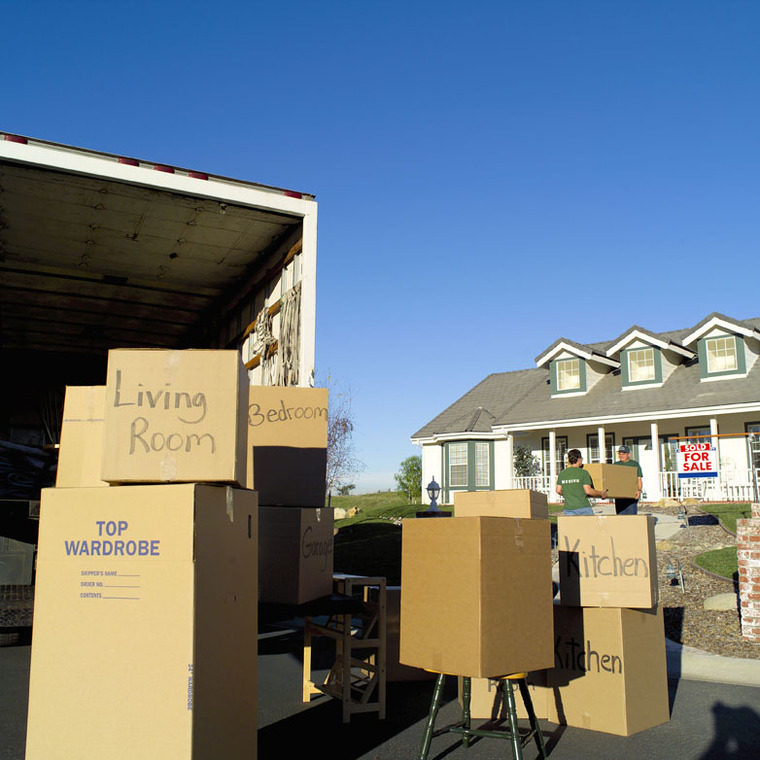According to Real Estate Expert Charlie Young, certain real estate factors are in place that may compel more people to consider relocating to a different area of the country. Here are a few:
- Increase in mortgage rates
- Pay not keeping pace with home prices
- Long-term toll of the recession
- Increased home prices have helped homeowners move from underwater to positive equity
- US census data is showing an increase in migration

On average, Americans move every five to seven years, so it is likely at some point in your future you will experience another moving day. While moving can be challenging, there are resources to make it easier. If you are remaining in the area, your real estate agent can continue to be a valuable resource on communities, schools, utilities, transportation, recreational opportunities, and more.
If you are moving out of the area, your agent can help you with a referral to another reputable agent in your new community. Our agents are a part of a broader network that connects them with agents all over the world. Many agents also have relationships with real estate-related service companies in their area whom they can call upon for information regarding title, escrow, mortgages, temporary housing, and moving services. They can also help guide you in your Internet search as you learn more about new communities and relocation services.
You’ve decided to move. Now what?
Once you have reached your decision, it’s time to gather information, start making decisions and get organized. Begin by creating a “move” file to keep track of your estimates, receipts, and other information. If you’re moving for a job, some expenses may be deductible, so you’ll want the paperwork when tax time comes.
If you are moving out of the area, start researching your new community and ask your agent for help in finding a referral agent in your new area. You’ll also want to determine whether you want to rent first or buy immediately. Your new agent should be able to help you with your decision. Once you know where you’re going, you’re also ready to get estimates from moving companies.
Reason’s people move:
Source: http://www.relocation.com/survey/022810_us_consumer_relocation.html
Closing one door, opening another
After you have chosen a moving date and either hired a moving company or reserved a rental truck, it’s time to wrap things up in your old neighborhood and start establishing relationships where your new home is located. This is particularly important if you are moving to a new town/city. You may want to ask your current doctors, dentists, etc. if they have any referrals on care providers in your new location. Be sure to check their recommendations on your insurance company’s online provider search list. Once you arrive, you may also want to ask new coworkers, friends or the school nurse for their recommendations.
Contact your children’s school and/or day care and arrange for their records to be sent to their new school district or day care. Call your insurance agent about coverage en route to your new home and also arrange for insurance in your new home. Remember to contact utility companies to disconnect, transfer or end service in your current home and turn on service in your new home.
You’ll want to file a change of address form with the U.S. Postal Service, either online or at your local office. If you don’t know your new address, have them hold your mail at the post office in your new locale. Don’t forget to cancel or transfer magazine and newspaper subscriptions as well.
If you belong to a health club or other association, contact them about ending or transferring your membership. Some clubs require written notice before cancellation. Finally, contact your bank or credit union to transfer or close accounts; if you have a safe-deposit box, don’t forget to clean it out before you leave.
Starting the countdown
With moving day in sight, it’s time to get organized. Here are a few items to check off your list before you start packing:
Tie up loose ends. Be sure to send out an email or change of address cards with your new contact information to family, friends, and associates. Return library books and any other borrowed items you may still have.
Triage your possessions. Determine what you are taking with you; what you are giving away to friends, family, or a favorite charity; and what is going to the dump or recycling center. If you have time, you can hold a garage sale or post items on craigslist.org or ebay.com.
Clean up. Drain all gas and oil from your mower, other machinery, gas grills, kerosene stoves and lamps, etc., before loading them onto a moving truck. Empty, defrost, and clean your refrigerator at least 24 hours before your move, and prepare other appliances for moving as well.
Have your car serviced. This is especially important if you are driving to your new home.
Packing strategies
If you are doing your own packing, start collecting boxes and/or buy them from your movers. It may take a few days to do your packing, so be sure to pack non-essential items first and label them carefully. If you have any valuables, it’s recommended that you take them with you as opposed to packing them. You risk the chance of losing those items if they’re packed away in boxes. It’s also smart to take along a box of essentials, including items such as toilet paper, paper towels, tape, soap, scissors, pens, paper, and your toiletries. That way you won’t have to track these items down once you’ve arrived in your new home.
 Facebook
Facebook
 X
X
 Pinterest
Pinterest
 Copy Link
Copy Link

